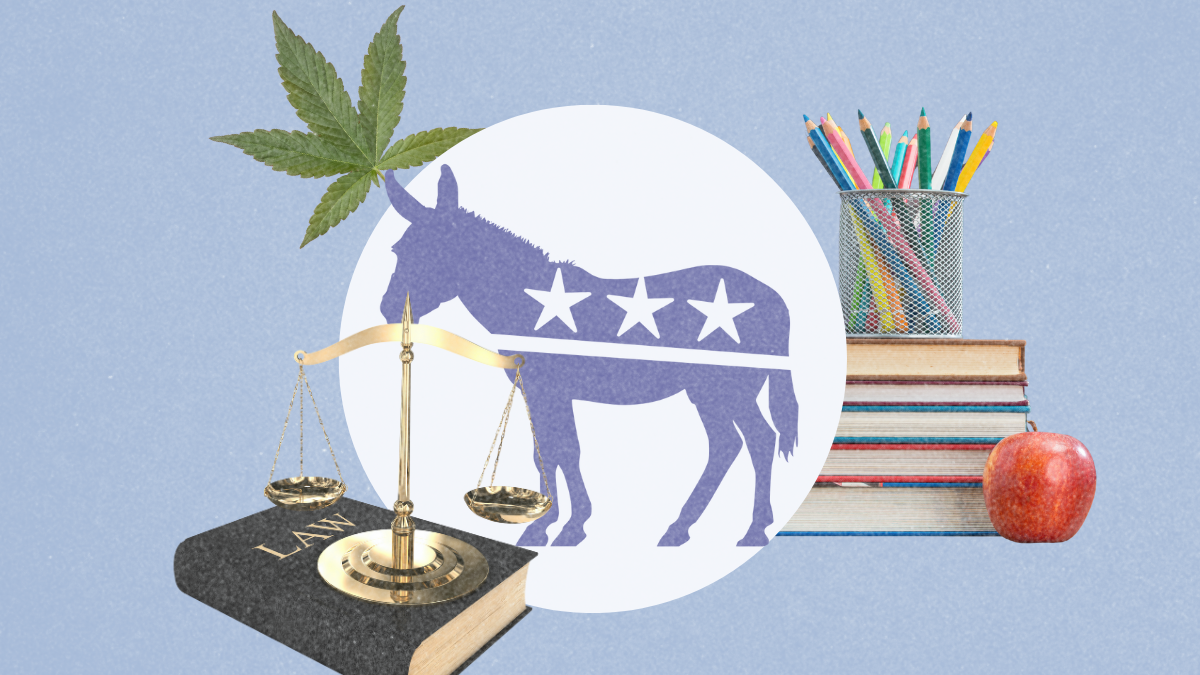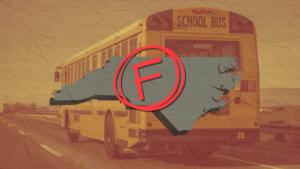North Carolina Democrats in both the House and the Senate have proposed legislation that would fund public schools, legalize marijuana, and bring transparency to the state legislature. These are all topic areas that have been brought forward before, however, Democrats filing new legislation demonstrates their commitment to these issues.
Funding Public Schools
HB 420, which is entitled “Sound Basic Education for Every Child.”, was introduced by Wake County Democrat Rep. Julie von Haefen. The bill mirrors the Leandro Plan: a plan to increase the amount of state spending on education by $5.7 billion annually from 2021 to 2028. The plan is the result of the 2021 Hoke County Board of Education v. State of North Carolina lawsuit, where a North Carolina court found the state was not paying enough funds into education.
This is not the first time a bill like this has been filed. Von Haefan has filed this before, but it has never made it to committee. The additional funds would serve to increase teacher pay and increase funding for programs that support students with disabilities.
At a press conference discussing her bill, von Haefan expressed concern for education funding in the state during a time where federal funds are at risk and the NC General Assembly approved an additional $200 million to expand opportunity scholarships.
Meanwhile, supporters of the idea include Democrats in the House who have co-sponsored the bill and Democratic Governor Josh Stein. Stein agreed to the Leandro Plan as attorney general in 2021 and, in his recent budget proposal, also called for increased teacher pay and $27 million more for special education funding.
“It is long, long past time for the legislature to do the right thing for North Carolina children,” von Haefen said.
Legalizing Marijuana
Democrats have put forward two bills that would bring North Carolina up to the rest of the country by legalizing recreational marijuana. In the Senate, we have Senate Bill 350, the Marijuana Justice and Reinvestment Act, whose main sponsor is Senator Graig Meyer. In the House is House Bill 413, the Marijuana Legalization and Reinvestment Act, sponsored by Representative Jordan Lopez.
On the issue of marijuana, the majority of states in the country have some form of legalization, whether it be medical or recreational. The bills would legalize recreational use in the state for North Carolinians over the age of 21, call for the creation of a department to manage the regulation of marijuana, as well as implement regulation measures such as how much a person can possess at once and prohibit it from being used in public.
The two bills are quite similar but differ when it comes to how to handle the taxation of marijuana. While Meyer’s bill in the Senate would tax based on potency, which he says is to “make it a disincentive to take the harder stuff”, Lopez’s House bill would implement a flat state tax. However, both lawmakers agree that legalization would bring big profits to the state and that the time to legalize it is now.
“People are ready for appropriate usage, and people are ready for us to stop arresting and imprisoning people for it,” Senator Meyer said. The bill in the House includes an expungement section that would remove some marijuana crimes from individuals’ records. While acknowledging the difficulty the bill faces in the legislature, Representative Lopez also recognizes the public support legislation like this receives.
“Not only from a personal oh, you may use it perspective, but oh, this may help my business, this may help my farm perspective as well,” he said.
Transparency in the legislature
With the recent filing of three bills, Democrats are calling for increased transparency in the state legislature. In the House, there is House Bill 178, Budgeting Accountability and Transparency, that would allow more time for public comment on state budgets that dictate the spending of millions of dollars. It also calls for records showing which lawmaker is responsible for which section of the budget.
Another bill in the House, House Bill 322, focuses on repealing a provision in the 2023 state budget bill that Republican lawmakers included to exempt themselves from the state’s public records law. The state’s public records law requires “All state agencies must permit inspection and furnish copies of public records”, according to the North Carolina Courts official website. With the exemption that is in the 2023 budget, lawmakers are allowed to pick and choose what records they provide to the public.
Senate Bill 242 also makes changes to the 2023 budget. This time repealing a section that allows communications regarding the drawing of election districts to remain secret. Republican lawmakers have a history of putting major policy changes into budget bills that move quickly through the legislature with little time for comment or amendments.
Democrats have attempted to increase transparency before, but the legislation was blocked by Republicans. Regardless, the public has shown support for such measures. From legislative advocates to news outlets, the call for legislative transparency is clear.
Ann Webb, the Policy Director at Common Cause North Carolina, says transparency laws are a step in the right direction. “We would very much like to see a move back in the right direction in terms of transparency for the whole legislative process,” Webb said.





